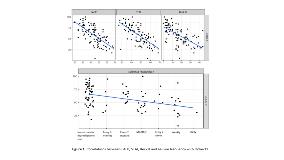The Correlation Between Sleep and Quality of Life in Epilepsy
Abstract number :
3.262
Submission category :
6. Comorbidity (Somatic and Psychiatric)
Year :
2018
Submission ID :
502591
Source :
www.aesnet.org
Presentation date :
12/3/2018 1:55:12 PM
Published date :
Nov 5, 2018, 18:00 PM
Authors :
Alvaro Pentagna, University of São Paulo; Sara Terrin, University of São Paulo; Bernardo Santos, University of Sao Paulo; Silvia Vincentiis, University of Sao Paulo; and Kette D. Valente, University of Sao Paulo (USP)
Rationale: Sleep disorders are a highly prevalent group of diseases in general population that are usually neglected in epilepsy. It is well-established that sleep quality impacts quality of life and social functioning in general population. This study aimed to verify the impact of quality of sleep on quality of life. We also evaluated the correlation between epilepsy-related factors and psychiatric comorbidities with quality of life. Methods: We interviewed 101 patients with epilepsy in the Clinical Neurophysiology Laboratory - University of São Paulo. Patients were interviewed with structured questionnaires for: depressive symptoms (Beck II), anxiety trait and state (STAI), adverse events of antiepileptic drugs (Liverpool Adverse Events Profile – LAEP), sleep quality (Pittsburgh Sleep Quality Index - PSQI), and quality of life in epilepsy (Quality of Life in Epilepsy – Qolie-31). We also evaluated demographic and epilepsy-related factors. For statistical analysis, we used Pearson correlation test for verifying the association between depression, anxiety and adverse events with sleep quality and quality of life. For categorical variables such as seizure frequency, the Kendall correlation test has been used. Results: Fifty-three patients (52.5%) had drug-resistant epilepsy. Seventy-nine(78,2%) patients had focal epilepsy and 22 patients (21,8%) had generalized. The mean age was 38.1 years-old (ranging from 18 to 73 years old), and there was a female predominance (63,37%). Quality of life correlated significantly with depressive symptoms (r= -0,63. IC95% -0,74 to -0,50; p<0,001), anxiety symptoms (r= -0,69. IC95% -0,78 to -0,57; p<0,001), seizure frequency (r=0,30. IC95% -0,47 to -0,12; p<0,001), adverse events (r=-0,68. IC95% -0,76 to -0,56; p<0,001), and seizure frequency (r=0,304. IC95% -0,472 to -0,116; p<0,001) (Figure 1). There was also a correlation between sleep quality and quality of life (r=-0,43. IC95% -0,58 to -0,26; p<0,001) (Figure 2). Conclusions: This series corroborates previous findings on the impact of epilepsy-related factors and severity of depressive and anxiety symptoms in worse quality of life. We add evidence that sleep quality, usually compromised in patients with epilepsy, is also correlated with worse quality of life. Funding: Conselho Nacional de Desenvolvimento Científico e Tecnológico - CNPqFundação de Amparo à Pesquisa do Estado de São Paulo - FAPESP

.tmb-.jpg?Culture=en&sfvrsn=53a2bf7e_0)